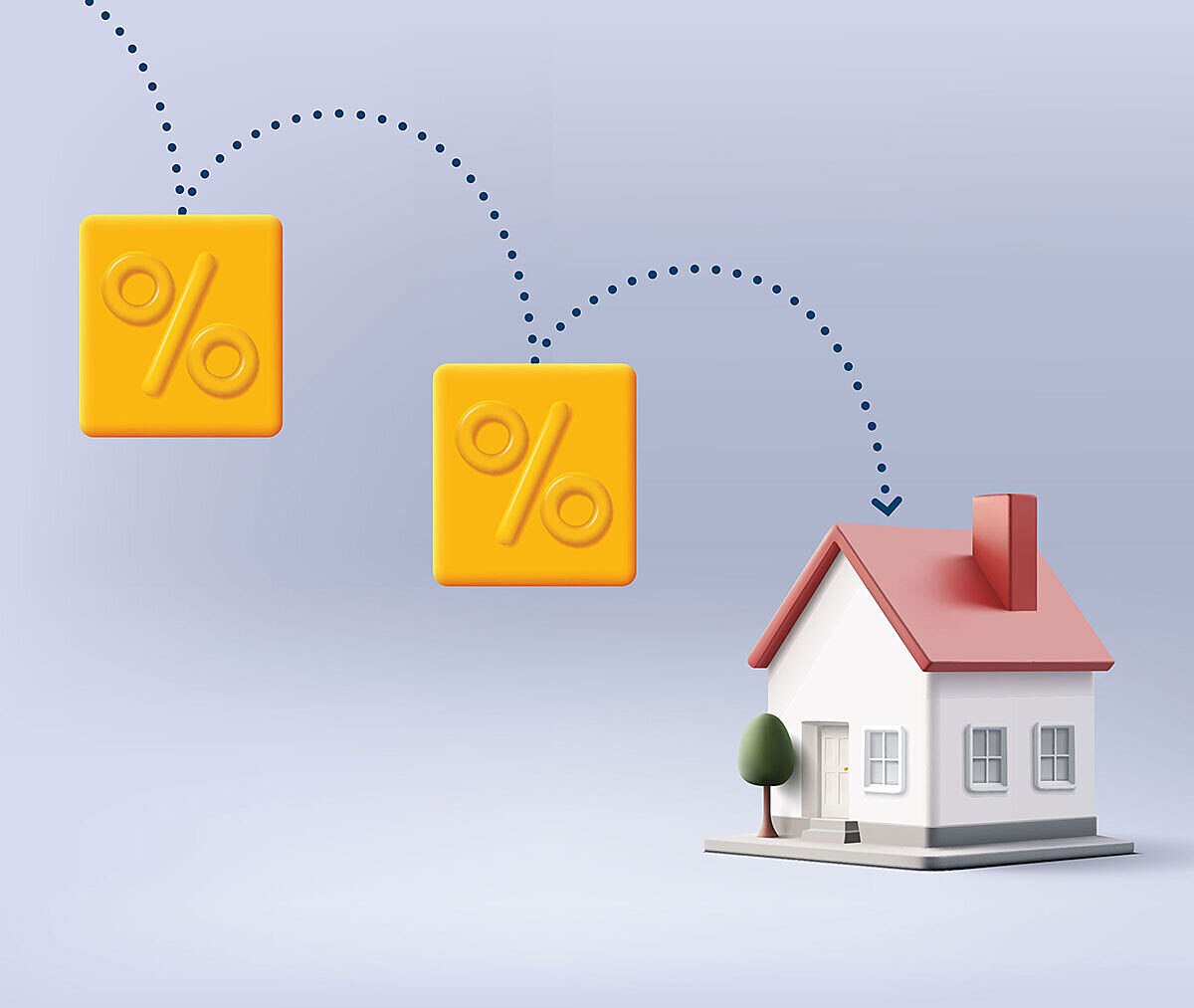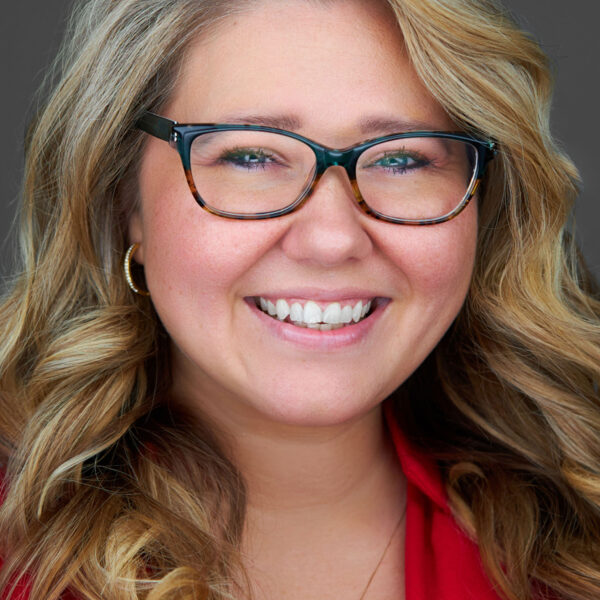Mortgage / Home Loans
There’s no place like your own.
From a traditional home loan (aka mortgage) to a loan for buying land or building a house on land you own, we can fund your adventure — from here to your front doorstep.
We make Home Ownership happen.
When it’s time to buy or even build the new home you’ve been dreaming about, Fortera is here to help. We’re experts in making the home loan process easy and affordable. We offer conventional, VA, construction and land loans.
Home Loans. Zero Down.
Fortera can help you get into a new home with zero down payment. With 100% financing and competitive rates — now is the time to buy.1
Low rates and closing costs
With competitive rates and fewer fees, we have the home loan that is perfect for you. We can even roll your closing costs into the loan, so you’ll barely know they’re there.
Solid, friendly guidance
Getting a mortgage is a big step with plenty of moving parts and decisions to make. That is why we've streamlined the application process and stay by your side every step of the way.
Have questions about the home loan process?
We've got answers. Connect with us, and let us guide you through the process.
Meet Your Team

Double Dip Rate Protection
Feeling stressed about locking in a rate too early? Don't worry. With our Double Dip Rate Protection, you get not one, but two opportunities to lower your rate—up until seven days before closing3. No need to play rate roulette—lock in now and adjust if the market moves in your favor.
Rate Match Guarantee
When it comes to securing your mortgage, you deserve confidence. That’s why we offer our Rate Match Guarantee. When you are shopping home loan rates, if you find a lower rate than ours, we’ll match it. If not, we’ll give you $1,000.2

Find the home loan that is right for you.
CONVENTIONAL LOAN
Description
The standard loan type for purchasing or refinance of a residential property. Conventional loans follow guidelines established by agencies such as Fannie Mae (Federal National Mortgage Association) and Freddie Mac (Federal Home Loan Mortgage Corporation). Click here to apply.
Details
Available in 5 to 30-year terms and as Fixed Rate or Adjustable Rate. Zero down payment option available1. No penalties for prepayments. Click here to current rates.
Is it right for you?
This is the most common type of home loan. Ideal for buyers who have average or above credit score, limited debt and have money available for a down payment. Overall, conventional mortgage loans provide borrowers with flexibility in terms of loan options. Have questions? Request to speak with a member of our team.
VA LOAN
Description
A VA (Veterans Affairs) mortgage loan is a type of home loan available to eligible veterans, active duty service members, National Guard members, Reservists, and certain surviving spouses. VA loans are guaranteed by the U.S. Department of Veterans Affairs (VA), making them a unique and valuable option for eligible members. Click here to apply.
Details
Eligible borrowers can purchase a home with no down payment, provided they meet certain requirements. No requirement for borrowers to pay private mortgage insurance (PMI). Click here to current rates.
Is it right for you?
Overall, VA loans are designed to provide eligible veterans, service members, and their families with access to affordable homeownership opportunities by offering favorable terms and benefits. If you are on active duty (having served 90 continuous days) or are a veteran whomeets length-of-service requirements,this may be the option for you. Have questions? Request to speak with a member of our team.
JUMBO LOAN
Description
A jumbo loan is a type of mortgage loan that exceeds the conforming loan limits set by the Federal Housing Finance Agency (FHFA). Click here to apply.
Details
As of 2024, the conforming limit for most of the U.S. is $766,550. Visit fhfa.gov to find the most up-to-date information for your local area.
Is it right for you?
Jumbo mortgage loans provide a valuable financing option for borrowers seeking to purchase high-value properties or homes in expensive markets, offering flexibility, competitive rates, and the ability to finance larger loan amounts without compromising on loan terms or quality of service. Have questions? Request to speak with a member of our team.
CONSTRUCTION LOAN
Description
Loan used to finance the construction of a new home or building. These loans have unique features and benefits tailored to the construction process, including progressive disbursements, interest-only payments, flexible terms, and customizable loan structures. Click here to apply.
Details
Construction loans are usually short-term loans, typically ranging from six to 12 months. You can borrow up to 90% of the cost to build.
Is it right for you?
Construction loans offer a comprehensive financing solution for individuals or families embarking on new construction projects or home renovations. These loans provide flexibility, financial support throughout the construction process, and the ability to achieve customized housing goals. Have questions? Request to speak with a member of our team.
LAND LOAN
Description
Also known as a lot loan, is a type of financing specifically designed to help individuals purchase undeveloped land or lots. Click here to apply.
Details
Shorter terms than traditional mortgage loans. Certain land documentation is required.
Is it right for you?
Loan designed to help individuals purchase land for various purposes, including building a primary residence, constructing a second home, starting a farm, or investing in raw land for future development. Have questions? Request to speak with a member of our team.
FHA LOAN
Description
An FHA loan is a type of mortgage that’s insured by the Federal Housing Administration (FHA), which is part of the U.S. Department of Housing and Urban Development (HUD). FHA loans are designed to make it easier for people with limited savings or lower credit scores to buy a home. Click here to apply.
Details
FHA loans typically require lower minimum down payments, but borrowers must pay mortgage insurance premiums (MIP), upfront and throughout the life of the loan. There are maximum loan amounts that apply to FHA loans that vary by location.
Is it right for you?
FHA loans provide an option for borrowers with lower credit scores and / or who need a lower down payment. Have questions? Request to speak with a member of our team.
FAQs
Should I get pre-qualified for a home loan before I start house shopping?
Yes, yes, and yes! Getting pre-qualified helps put the purchasing power in your hands. When you get pre-qualified, you learn exactly how much house you can afford and you know that amount before falling in love with a place that is out of your budget. It's our number one recommendation to avoid home heartbreak.
How much can I afford?
The first step in buying a house is determining your budget. This calculator steps you through the process of finding out how much you can borrow. Fill in the entry fields and click on the 'View Report' button to see a complete amortization schedule of your mortgage payments.
What is title insurance and why do I need it?
If you've ever purchased a home before, you may already be familiar with the benefits and terms of title insurance. But if this is your first hoe loan or you are refinancing, you may be wondering why you need another insurance policy.
The answer is simple: The purchase of a home is most likely one of the most expensive and important purchases you will ever make. You, and especially your mortgage lender, want to make sure the property is indeed yours: That no individual or government entity has any right, lien, claim or encumbrance on your property.
The function of a title insurance company is to make sure your rights and interests to the property are clear, that transfer of title takes place efficiently and correctly, and that your interests as a homebuyer are fully protected.
Title insurance companies provide services to buyers, sellers, real estate developers, builders, mortgage lenders, and others who have an interest in real estate transfer. Title companies typically issue two types of title policies:
- Owner's Policy: This policy covers you, the homebuyer.
- Lender's Policy: This policy covers the lending institution over the life of the loan.
Both types of policies are issued at the time of closing for a one-time premium, if the loan is a purchase. If you are refinancing your home, you probably already have an owner's policy that was issued when you purchased the property, so we'll only require that a lender's policy be issued.
Before issuing a policy, the title company performs an in-depth search of the public records to determine if anyone other than you has an interest in the property. The search may be performed by title company personnel using either public records or, more likely, the information contained in the company's own title plant.
Once a title is issued, if any claim covered under your policy is ever filed against your property, the title company will pay the legal fees involved in the defense our your rights. They are also responsible to cover losses arising from a valid claim. This protection remains in effect as long as you or your heirs own the property.
The fact that title companies try to eliminate risks before they develop makes title insurance significantly different from other types of insurance. Most forms of insurance assume risks by providing financial protection through a pooling of risks for losses arising from an unforeseen future event, say a fire, accident or theft. One the other hand, the purpose of title insurance is to eliminate risks and prevent losses caused by defects in title that may have happened in the past.
This risk elimination has benefits to both the homebuyer and the title company. it minimizes the chances that adverse claims might be raised, thereby reducing the number of claims that have to be defended or satisfied. This keeps costs down for the title company and the premiums low for the homebuyer.
If I have income that's not reported on my tax return, can it be considered?
Generally, only income that is reported on your tax return can be considered when applying for a mortgage. Unless, of course, the income is legally tax-free and isn't required to be reported.
You may be able to take advantage of our bank statement program. This program may require a larger down payment and have a higher interest rate than our regular mortgage rates.
I’ve co-signed a loan for another person. Should I include that debt here?
A co-signed debt is considered when determining your qualification for a mortgage. If the co-signed debt doesn’t affect your ability to obtain a new mortgage we’ll leave it at that. However, if it does make a difference, we can omit the monthly payment of the co-signed debt if you can verify that the other person responsible for the debt has made the required payments, by obtaining copies of their canceled checks for the last twelve months.
I am selling my current home to purchase this home. What type of documentation will be required?
If you're selling your current home to purchase your new home, we'll ask you to provide a copy of settlement or closing statement you'll receive at the closing to verify that your current mortgage has been paid in full and that you'll have sufficient funds for our closing. Often the closing of your current home is scheduled for the same day as the closing of your new home. If that's the case, we'll just ask you to bring your settlement statement with you to your new mortgage closing.
I'm self-employed. How will you verify my income?
Generally, the income of self-employed borrowers is verified by obtaining copies of personal (and business, if applicable) federal tax returns for the most recent two-year period.
We'll review and average the net income from self-employment that's reported on your tax returns to determine the income that can be used to qualify. We won't be able to consider any income that hasn't been reported as such on your tax returns. We'll need a full two-year history of self-employment to verify that your self-employment income is stable.
I am relocating because I have accepted a new job that I haven’t started yet. How should I complete the application?
If you will be working for the same employer, complete the application as such, but enter the income you anticipate you be receiving at your new location. If your employment is with a new employer, complete the application as if this were your current employer and indicate that you have been there for one month. The information about the employment you’ll be leaving should be entered as your previous employer.
I have student loans that aren't in repayment yet. Should I show them as installment debts?
Any outstanding student loan should be included in the application. If you are not sure exactly what the monthly payment will be at this time, enter an estimated amount.
See more FAQs below
Helpful Articles
*Taxes and insurance premiums are not included in the payment, and the actual payment obligation may be greater.
Conventional Mortgage Loan Payment Example: For a $250,000 loan for a term of 30 years with a 6.650% APR, the monthly payment will be $1,996.59.
VA Mortgage Loan Payment Example: For a $250,000 loan for a term of 30 years with a 6.601% APR, the monthly payment will be $1,925.00.
1Certain products may include closing costs and other fees which would not be covered in the Zero Down offer. *Conventional loans: 100% financing available for purchase loans only. Product features subject to approval. Must be primary residency. Not all loans qualify and certain credit restrictions may apply. Fortera reserves the right to terminate this promotion at any time without notice. ** VA loans are subject to funding fee, which may be financed up to the maximum allowed loan amount.
2Home Rate Match Available for purchase and refinance first mortgages. Certain product exclusions may apply. The date of the Loan Estimate with the competing lender must be within 3 calendar days of the rate lock with Fortera. Please note that no other documentation may be used to show competitors' terms. The rate must be from a competing lender that has a physical branch location within 50 miles of a physical Fortera branch location. The terms of the competing loan must be identical to Fortera's loan; for example, a 15-year, fixed-rate product with mortgage insurance is not identical to a Fortera 15-year, fixed-rate product that does not have mortgage insurance. If the loan does not close within the commitment period, the rate match may be voided. NOTE: The initial Loan Estimate from a wholesale lender/broker is not an acceptable document for a rate match submission unless the Lender Information section on the Loan Estimate is completed. To receive $1,000, you must provide a signed, executed copy of the final Closing Disclosure and a copy of the final mortgage note within 30 calendar days of your loan closing with the original competing lender. Not valid if original loan terms or conditions change prior to closing. Once approved, $1,000 will be automatically deposited into your Fortera Share Savings account within 30 calendar days of receiving the necessary documentation. Membership and share savings account is required to receive cash back offer. Recipient is solely responsible for any personal tax liability arising out of this incentive. Not all loans qualify. Fortera reserves the right to terminate this promotion at any time without notice. Can’t be combined with other offers.
3Fortera’s Double Dip Rate Protection is available for new applications on purchase and refinance loans at no additional fee for up to a 60-day lock. You may request a lower rate no more than two (2) times, with a maximum cumulative interest rate reduction of 0.50%. You must monitor rates to decide when to exercise the option to lower the rate. All requests for a lower rate must occur at least seven (7) calendar days before closing. Not all loans may qualify. Fortera reserves the right to terminate this promotion at any time without notice.

